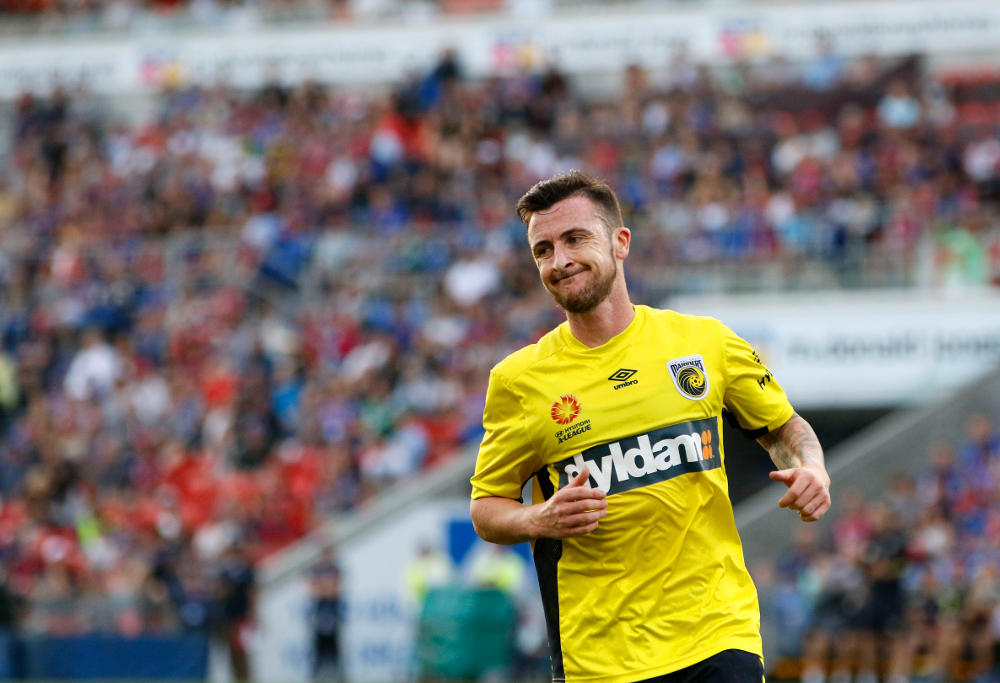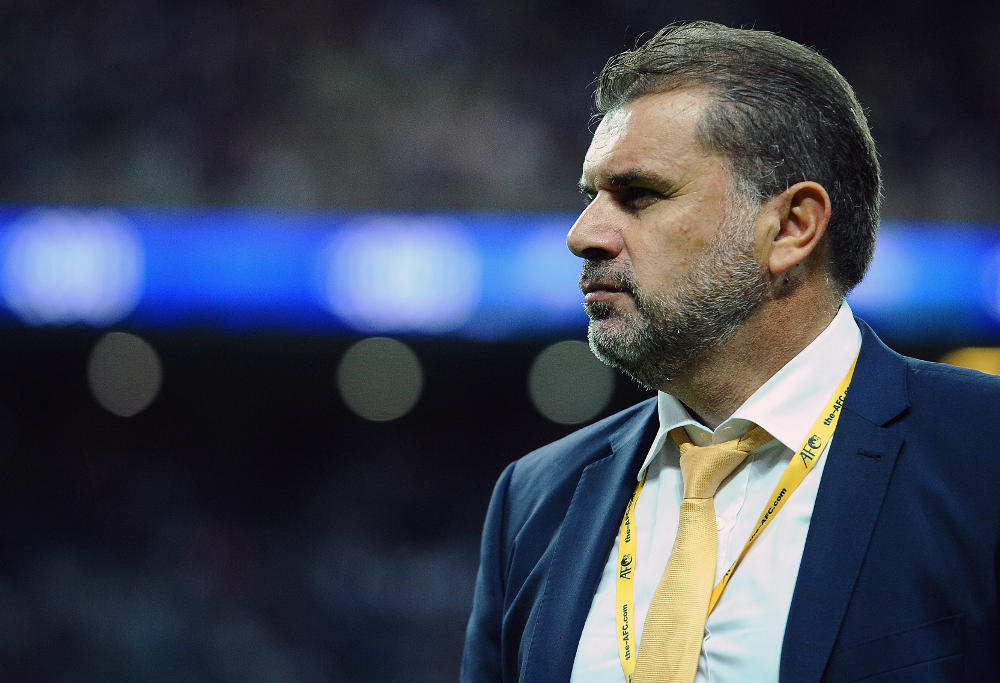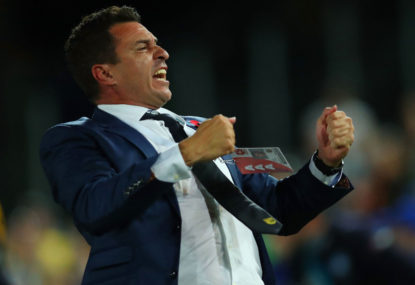Paul Okon, whose Mariners team have had one of the least conspicuous worst-ever seasons, walked away from the club on Tuesday.
To put things in perspective, the Mariners play Sydney, Brisbane, Melbourne City and Newcastle in their final four fixtures; that’s three of the top four, and an underachieving Brisbane team that just beat the leaders.
It’s more than probable that Central Coast finish the campaign with their current points total – 20 points – which would make it their second-worst final tally since 2010.
They have been awful this year, and if not for the four points wrested off Sydney FC, it would seem even worse.
The hope drained away insipidly, quietly; Okon’s promise as a manager, stoked by the ambition inherent in his pass-heavy approach, was built up in spite of the frank facts of his maiden season, in which the Mariners finished joint-second-last.
There was a sense that, once Okon was able to craft the playing roster to his tastes, the football would be less haphazard, strewn with fewer errors, tinged less distinctly with the sense of a team only barely able to comprehend their brief, much less carry it out. Okon brought in 14 players at the start of the 2017-18 season, and saw that many depart, although he probably wasn’t overjoyed to see Paul Izzo and Roy O’Donovan join the latter category.

AAP Image/Darren Pateman
Still, this was – keeping the very meagre finances and highly questionable support of the club firmly in mind – a team as close to hand-crafted by the manager. These were his players, and it was upon their collective talent – and up against the limits of that talent – that Okon was relying; their shortcomings were as important to the system as their strengths, and it was Okon’s job not just to tailor his team to his plan, but his plan to his team.
He was unable to. Central Coast lead the league in passes-per-shot, passes-per-goal, and possession. They are last in the league for percentage of long balls played. They’ve completed the second-most passes in the attacking third, behind Sydney FC, and at a league-leading percentage of accuracy.
Every Mariners game was a flurry of passing, weaving patterns across the full length and breadth of the pitch. This was the foundation of Okon’s philosophy.
Central Coast are also last in shots on target, and have scored the equal-fewest goals so far. Theirs was an attack that swelled with build-up activity, lolling around like an elastic bladder bloated with passes in key areas, considered approach play and industrious probing, but that could not be converted into goals. The Mariners have attempted the third-most crosses this season, and yet completed the second-fewest. It’s all fiddling and no incision.
Combine this busy impotence with a slavish dedication to passing out from the back – a practice that, when executed shoddily, tends to regularly hand goals to the opposition – makes for an incredibly frustrating team; we can see what you’re trying to do Paul, but you’re failing.
Initial failures were excused in the first season, but the longer the trying and failing went on, the excuses dried up. This was largely a problem with the attack; Central Coast have conceded 37 goals this season, which is a lot, but fewer than Perth, Western Sydney, and Wellington. That they’ve scored so few is the bigger issue.
This sounds familiar, of course; Ange Postecoglou ended his Socceroos tenure under a similar cloud, and walked away from the job among echoing calls for him to modify – even abandon – his approach, which also suffered from impotence, ill-fit and defensive errors.

AAP Image/Matt Roberts
Whereas Ange’s trudge towards the exit was brightly lit and closely followed, Okon’s has had to suffer under far less scrutiny, but the similarities are striking.
Postecoglou’s Yokohama FM recently earned their first J1 win, over Urawa Reds no less, having lost two and drawn one of their first three league games. Apparently Yokohama controlled possession, consistently passed out from the back and played a high line, with the goalkeeper involved when in possession.
The opening stanza of that game saw Yokohama barely survive a high Urawa press, a period in which they looked especially fragile on the counter and could easily have conceded. Eventually, though, Yokohama took control and ended up narrow 1-0 victors. Again, this all sounds familiar.
There is a limit to which a manager’s dedication to his tactical philosophy can be considered admirable, and that limit is usually breached when the manager’s commitment begins to visibly hurt the team. Central Coast have been bad for a while, so it was difficult to pinpoint that moment for Okon; perhaps that point was reached in his first match. Certainly, now that he’s gone with zero progress made from last season, it’s obvious very little worked.
How much of this is the club’s fault, or the fault of the players? How much better might Okon have done with more money at hand, or with O’Donovan up front? Would Okon take Barcelona to the treble, playing a brand of tiki-taka the likes of which Pep Guardiola only sees in his most ecstatic fantasies?
Well, if rumours are true, and Okon is in line to take over at Sydney after Graham Arnold leaves, we’ll see him with a much better team, and more resources, at his disposal. Milos Ninkovic is no Lionel Messi, sure, but Andrew Hoole is no Milos Ninkovic.
Okon’s time at Central Coast will now be bookended in the A-League annals, a curious sojourn that began with lofty, buoyant ambition, but turned out as a period of near-consistent foundering, before ending as an infuriating example of how imperative it is not to be too imperative.































































































